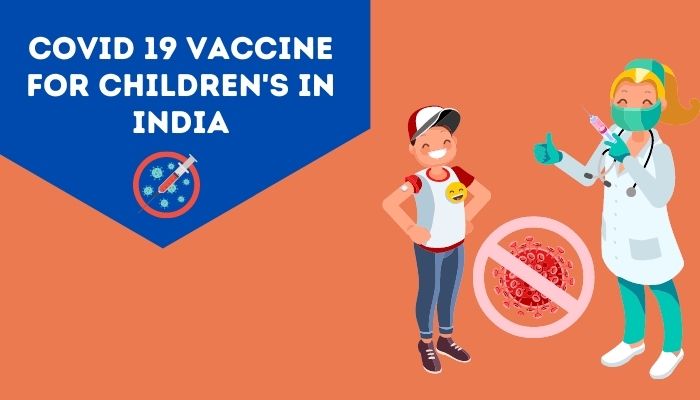It’s been 2 years since the first covid-19 case, which was found in Wuhan, China. Even though things have been getting better ever since the introduction of the first vaccines, the pandemic still continues.
With the introduction of vaccines, everyone thought that the pandemic would be over in no time; however, many countries are still seeing a surge in COVID-19 cases. The virus is continuing to mutate and become even more resistant to current vaccines. More research is needed to be done on the new mutations of the virus and, in general, for treatment and other medicines against this virus. COVID 19 has led to serious types of illnesses and deaths in many cases.
Facts About COVID 19
There might be a lot of things about coronavirus that you might not be aware of. Some interesting facts about COVID 19 are –- Asymptotic People – People can spread coronavirus to others without even showcasing any symptoms of the virus themselves. According to an estimate, about 40% of the people who are infected by the virus do not have any kind of covid-19 symptoms. Now, that can be good news for those people who have been infected by covid-19; however, it is bad news for the general public as they can catch the virus from asymptomatic people unintentionally. This is the exact reason why wearing a mask in public is recommended. You can avoid the risk of getting infected by someone who might be infected with the virus but not showing symptoms for it.
- Threat to Babies & Children – You might not know, but covid-19 poses a serious threat for babies and children. They are more likely to get seriously ill as compared to adults when they are infected by the coronavirus. In some cases, it has been seen that children who had tested positive for covid-19 were being affected by multisystem inflammatory syndrome (MIS) as well. Though the cases of MIS are rare, it can severely harm the bodies of children. Children should take extra- precautions against covid-19.
- Blood Group A – Some studies conducted have indicated that people who have blood group A are at a greater risk of getting infected by covid-19. People who had blood group O were found to be less susceptible to the virus. More respiratory failures are seen with people with blood group A.
- Possibility Of Reinfection – Many people getting infected by the virus and then recovering from or getting vaccinated stop taking covid-19 precautions and safety measures, thinking that they are completely safe from the virus, but that is not the case. The immunity granted by vaccines can only last for a certain time. In many countries around the world, cases of reinfection have been registered with those people who had been previously infected by the virus or were completely vaccinated against it. Reinfection risk of covid-19 depends from person to person and the type of covid strain that the person is exposed to. Even though the natural and vaccine immunity should last for 5-12 months, many people were reinfected much earlier. It is very important to take all kinds of precautions and safety measures even after getting vaccinated to avoid the chances of getting reinfected.
- Digestive Issues – The most common symptoms of covid-19 are cough, cold, fever, and headache. However, one of the lesser-known symptoms is the digestive symptoms. This includes a lack of appetite, vomiting, diarrhea, and serious abdominal pain.
- Virus on Surfaces – As we know, the main way through which coronavirus transmits is respiratory droplets. Whenever someone who is already infected with covid-19 coughs or sneezes, the virus can reach anyone close to them. Coronavirus can even spread through the air, but that is only seen in crowded places and poor ventilation areas. Many people are not aware that coronavirus can also spread through surfaces. Studies suggest that coronavirus can live on surfaces such as cardboard, plastic, and metal for about 24 hours. That time is enough for anyone to be infected if they touch the surface and then touch their eyes or nose. It is very important to disinfect and clean all kinds of surfaces that are frequently touched even if you are indoors to avoid the chance of getting infected by the virus.
- Source of The Virus – The coronavirus seems to have originated from animals which then spread to humans, and once it reached humans, it started spreading from person to person. The other two types of coronavirus, SARS-CoV, and MERS-Cov have also originated from animals, there are many different types of coronaviruses, and they mainly infect animals. Bats carry many different types of coronaviruses and can be a source of spread.
- Mutation – As is the case with any type of virus, the coronavirus is mutating, and some of these mutations can resist vaccines. One of the very first mutations of coronavirus was discovered in the United Kingdom. The most contagious variant of coronavirus is the delta variant.
- Binding to Human Cells – The reason why coronavirus is much difficult to control in comparison to SARS or any other type of virus is that the coronavirus tends to bind 10-20 times more tightly to cells of humans which makes it more deadly for humans in comparison to other viruses.
- Losing the ability to smell or taste – Cough, cold, fever, and headache are the most common symptoms of covid-19. However, in many cases losing the ability to smell or taste food has also been a symptom for COVID-19, which is pretty unusual. If you cannot smell anything or taste food, you should immediately contact your doctor as you are most probably infected by the coronavirus.


